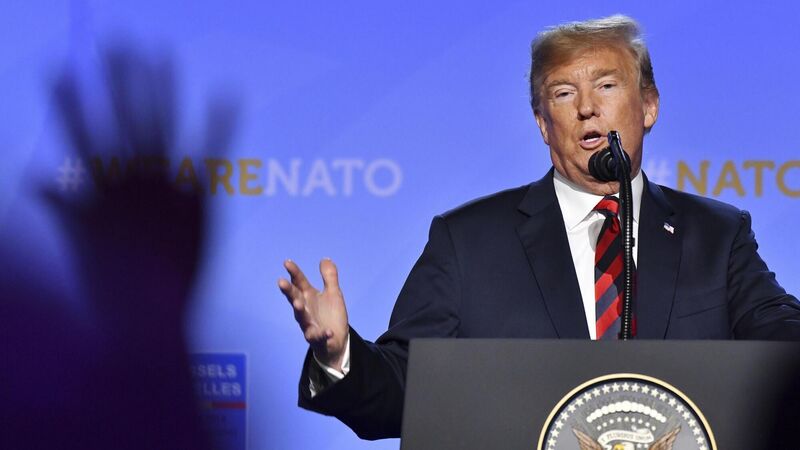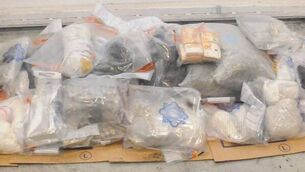Ireland is now a lonely neutral island surrounded by Nato

US president Donald Trump speaks during a press conference after a summit of heads of state and government at Nato headquarters in Brussels, Belgium, in 2018; during the four years of his first term in office, Trump showed contempt for the alliance. Picture: AP
There is a bland assumption by the Irish public that if there is a serious threat to our national security and defence, Nato will step in and defend Ireland.
Moreover, this assumption is the unspoken reason why our political leaders have neglected funding up our Defence Forces over the past four decades.













